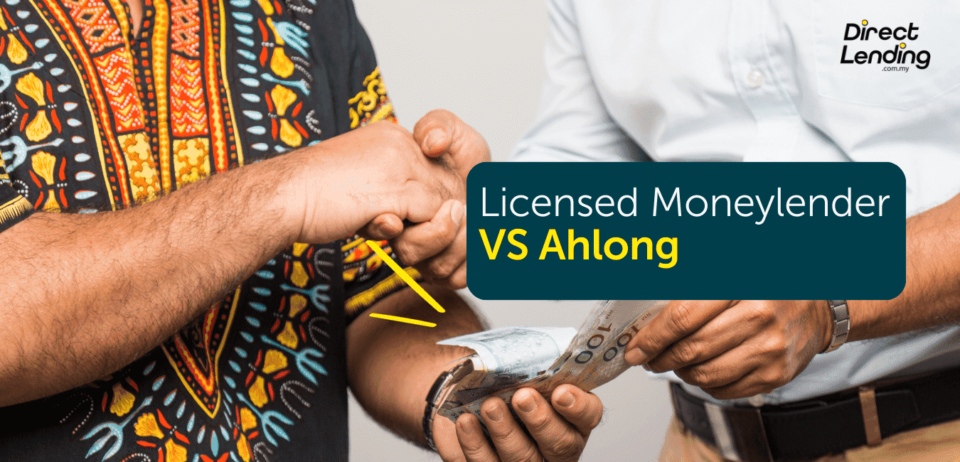By Yik Seong
Director
10 Clever Ways to Manage Your First Salary

If you are a young graduate who just got employed, receiving your first salary can be really exciting. Since this is your first time getting paid for your hard work, surely, you will have a few things in mind that you would like to spend on.
But, do you know that many have regretted overspending their salary due to bad financial planning? In this article, let us share with you some tips on how you can plan to better spend your first pay cheque.
Table of contents
- 1. Create a Financial Management Formula
- 2. Plan Your Expenditures
- 3. Start a Savings Account
- 4. Diversify Bank Accounts
- 5. Differentiate Between Needs and Wants Wisely
- 6. Settle Your Debt
- 7. Understand Refinancing or Debt Consolidation
- 8. Ensure Your Credit Score is Healthy
- 9. Consider Investing
- 10. Claim Your Income Tax Deductions
- Conclusion
1. Create a Financial Management Formula
Create a budget based on an easy-to-follow financial management formula. For example, the 50/30/20 rule. Divide your income into three categories – 50% for needs and essentials, 30% for wants, and 20% for savings or debt payments. Allocate half of your income for basic needs such as food, utility bills, home maintenance, and others, while 30% of your income can be used for discretionary spending like entertainment, vacations, and so on. The remaining 20% should be dedicated to savings, which can also be used for investments and emergency funds.
It's crucial to have savings and wise personal financial management. However, don't forget the responsibility of children towards their parents. As a child, your parents' finances are also one of the commitments you need to include in your budget plan. Like people often say, the ideal man not only excels in personal financial management but also doesn't forget their responsibilities as a child.
2. Plan Your Expenditures
As soon as you receive your first salary, plan your expenditures carefully. First, check and pay off all your bills and loans before spending on anything else. Make sure you prioritise your ‘needs’ before your ‘wants’.
Every expenditure should be accounted for, and if not tracked, it can lead to your budget going off course. You can track your expenses by recording them in a notebook or using financial apps that help monitor these expenses. Keeping track of all these expenditures can help you understand what has been spent and control future spending.
If you feel that you are becoming more extravagant in your spending, you might fall into the category of "The Celebrity," an individual who excessively buys things based on wants rather than needs. Remember, choosing to fulfill your wants can lead to quickly depleting your funds, and the possibility of saving might be non-existent. Identify your financial personality by tracking expenses or try to find out through online personality quizzes.
3. Start a Savings Account
Turn saving into a habit. Try to allocate at least 10% of your salary to be used for your savings. You can start by opening up a separate savings account. This will avoid you from using the money that you saved for your daily expenses.
Look for a savings account that offers you with high interest. The more you save, the more interest that you would accumulate. Also, in the event of any future unforeseen emergencies, you can use your savings to fund it.
4. Diversify Bank Accounts
5. Differentiate Between Needs and Wants Wisely
If a need is unavoidable or cannot be reduced, try to cut down on your wants. For example, if the price of a pair of shoes is RM100 and the second pair is on sale for RM160, remember, you're only saving RM20. At the same time, you don't really need two identical pairs of shoes.
If you're already a family person, both needs and wants will differ compared to your bachelor days. Family financial management is slightly different from individual financial management during bachelorhood. However, it's crucial every time you want to make a purchase, especially if you feel it's somewhat expensive and exceeds your budget, to think first. This allows you to reconsider whether it's truly necessary.
6. Settle Your Debt
There are two easy methods to manage your debts, namely the 'avalanche' and 'snowball' methods.
Avalanche Technique
This method focuses on paying off debts with the highest interest rates first and making minimum payments for other loans. Next, focus on paying off debts with the second-highest interest rate. Repeat the entire process until you successfully settle all debts. This method benefits you by reducing the total interest paid and the repayment period.
Snowball Technique
This method focuses on making large payments for the loan with the lowest outstanding balance, then making minimum payments for the rest. This allows the smallest debt to be paid off first before moving on to others. This approach also makes you feel more accomplished, acting as motivation to continue settling the remaining debts.
Imagine this is your current debt:
Credit card debt of RM7,000 at 16% per annum.
Car loan of RM12,000 at 3.5% per annum.
Student loan of RM6,000 at 1% per annum.
Using the avalanche debt method, you would pay off the credit card debt first. You would pay a total interest of RM2,955.61 and be debt-free 31 months earlier compared to using the regular method. Using the snowball debt method, you would pay a total interest of RM4,562.11 over 6 years. The difference is significant based on the credit card interest rate. However, what works for some may not be effective for you, so it's essential to know what drives you to pay off debts according to your capability.
7. Understand Refinancing or Debt Consolidation
Refinancing and debt consolidation are two strategies that allow you to switch to better loans with lower interest rates and lower monthly payments.
Debt consolidation means combining all debts into a single debt. This can help lower monthly payments and reduce the overall interest rate. For example, if you have several credit card debts with outstanding balances and different interest rates, like a high-interest rate of 18% per annum, you can choose to take a personal loan from bank and koperasi with a much lower interest rate of, say, 2.95% per annum to pay off all outstanding balances at once. Two benefits are achieved: you can reduce monthly payments and focus on repaying one installment.
Refinancing works by replacing existing debt with new debt under better terms, such as a lower interest rate. Besides taking advantage of loans with lower interest rates, it can also help reduce monthly payments because the loan period is extended. This is because obtaining an affordable loan and paying less interest. You may also consider refinancing if you have a better credit score and want to switch to a different rate.
Overlap Loan with Bank and Koperasi Loan
Video: Is Overlap Loan Worth It (How to Use Overlap Loan Calculator)
8. Ensure Your Credit Score is Healthy
Credit score is a measure of your creditworthiness. It is based on credit history that records all loans, outstanding balances, repayment history, and other credit information.
In Malaysia, your CTOS report is used to check your credit score. CTOS is a leading Credit Reporting Agency (CRA) operated privately. It also provides credit reporting and takes data from public sources.
Having a healthy credit score proves that you are a responsible individual who pays bills on time. This reduces your risk as a borrower, and banks are confident about granting you a loan. This opens up higher opportunities for credit cards and loan approvals, quick loan approvals, and loans with lower interest rates.
9. Consider Investing
It's often wrongly assumed that only wealthy people can invest, and not all investments are as risky as stock market crashes depicted in movies. There are several low-risk investments in Malaysia, including ASB, PRS, EPF, high-yield savings accounts, and bonds.
Amanah Saham Bumiputera (ASB) is a fixed-price unit trust and long-term investment open to all Bumiputeras in Malaysia. ASB is a unit trust fund in which fund managers use money from various investors to invest and generate returns. It's priced at RM1 per unit, and the minimum investment you need to make is RM1. For non-Bumiputeras, an alternative is Amanah Saham Malaysia (ASM). Both are managed by Amanah Saham Nasional Berhad (ASNB), and since there are different returns and fund holdings between these funds, you can choose to invest in more than one.
Another way to save when investing is by contributing to retirement schemes, namely the Employees Provident Fund (EPF) and the Private Retirement Scheme (PRS). EPF is mandatory and government-owned, while PRS is a voluntary long-term savings and investment scheme managed by private companies. You can see a list of providers here. There are several PRS retirement funds such as growth funds, balanced funds, and conservative funds that can be chosen based on needs, objectives, and risk appetite.
Furthermore, low-risk investments include high-yield savings accounts and bonds. Savings accounts offer interest rates between 2% and 4.75% per year; you can check them out as they all have different terms and conditions suitable for spending or saving. Bonds are securities that represent loans. When you invest or buy bonds, you are lending money to the bond issuer, and they will invest it themselves in other funds, and so on. You can hold bonds until maturity and collect interest payments from the issuer. When bonds mature, you might get money by selling bonds (even at a higher price), depending on the market value at that time.
10. Claim Your Income Tax Deductions
Income tax deductions are a system set by the Inland Revenue Board of Malaysia (Lembaga Hasil Dalam Negeri Malaysia or LDHN), allowing taxpayers to deduct a certain amount of money from their tax debt. Some types of aid include life insurance, medical expenses for parents, individual education fees, and the purchase of laptops or smartphones. Income tax deductions allow you to reduce your taxable income, affecting the tax rate imposed. If planned well, it can save you a substantial amount of money.
Let's say your annual income is RM46,000, and throughout the year, you have receipts for tax deductions totaling up to RM6,000. Your annual income now becomes RM40,000, and your income tax will be based on the revised amount.
Want to claim a larger tax refund but don't know what can be claimed? Here's a list of all tax deductions, rebates, and exemptions that can be claimed throughout the year to maximize your tax return. Just remember to keep receipts!
Conclusion
Financial literacy is a crucial skill to hone. It is not difficult, but it requires a start and a continual effort to bring about change. Begin personal financial management with small and simple steps; gradually, it can prevent major crises. Choose to implement these tips, and you will start thanking yourself in the future.
This article was written by Direct Lending – a platform for personal loans from banks, cooperatives, and licensed moneylenders. We can help you find, compare, and apply for a loan that best suits you. Check your eligibility for free and get a loan as low as 2.95% or as fast as within 2 working days.
Learn financial literacy because it empowers you; do not hesitate to keep learning. Get more money-saving tips and financial management insights on our Telegram channel!
(This article was originally published on May 13, 2021, and updated on October 10, 2023).
About the writer
Yik Seong
Yik Seong is the founder of Direct Lending and Chartered Financial Analyst (CFA) Charterholder, with over 20 years of finance experience working in Malaysia, London, Singapore, and Hong Kong. Driven by his passion for finance, Yik Seong founded Direct Lending with a mission to provide safe and affordable financing to individuals with restricted access to credit channels. He enjoys long hikes during the weekend and never skips a morning coffee.



